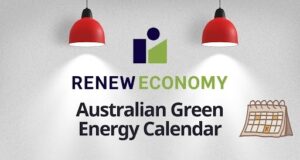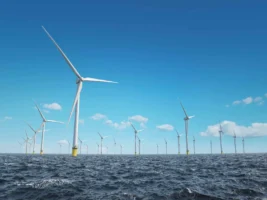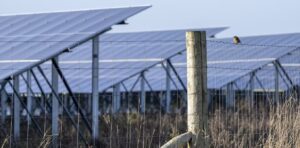Western Australia energy minister Mike Nahan says a regulation that effectively bans homes with battery storage from feeding power back into the grid will be removed within a month, paving the way for more widespread uptake of the technology.
The ban – imposed by state-owned utilities Western Power and Synergy – was first highlighted by RenewEconomy last month. Since then, it has become a major political issue, leading Nahan to describe the regulation as “red tape gone mad” during a debate in parliament.
Nahan has predicted that rooftop solar will continue to roll out quickly on the state’s homes and businesses, and he says it is growing at 30 per cent a year. Battery storage will also be popular, although he says its are not yet competitive.
Nahan told the ABC this week that the state-owned utility retailer Synergy will offer home battery storage systems when they become affordable, most likely in the middle of 2016, and will seek to match the offering of its privately owned rival Alinta Energy.
“Batteries still are, for most households, not commercial,” Nahan said. “They are coming down in price but I understand they are experimental.
“[For] certain households and businesses, depending on the consumption, it makes sense – but for the vast majority it does not yet. Synergy and other [companies] … are preparing to get into the market, get an investment, understand it and when batteries come down, they’ll be ready to go.”
The ABC said Synergy will likely be ready to offer the systems to households by the middle of next year, following the launch of a package of solar PV products and energy management solutions for homes and businesses, set to be announced in early 2016.
The W.A. market already has more than 180,000 homes with a total of more than 500MW of rooftop solar, and Nahan has predicted that rooftop solar could meet all of daytime demand within 10 years.
 WA households are still adding solar at a rate of more than 1,000 homes a month, with nearly 5MW added in the month of September, according to data from the Clean Energy Regulator. The postcodes of the northern suburbs of Perth (6065) and Mandurah (6210) to the south installed more solar than any other area in Australia in September.
WA households are still adding solar at a rate of more than 1,000 homes a month, with nearly 5MW added in the month of September, according to data from the Clean Energy Regulator. The postcodes of the northern suburbs of Perth (6065) and Mandurah (6210) to the south installed more solar than any other area in Australia in September.
Almost all homes and most businesses are expected to install solar, particularly as the government rolls back the subsidy on grid-based power, which still amounts to more than $500 a year for each household.
Alinta can not sell electricity to households until the market is deregulated in mid-2018, so the gas retailer is working around the restriction by selling customers a product to generate electricity, rather than electricity itself.
Dr Nahan said the Government was also set to remove a regulation which prohibits batteries from feeding energy back into the grid, in a move expected to flatten the peaks and troughs of solar power.
“The limit has been the regulator, the ERA,” he said. “I’ve discussed with ERA, Western Power and Synergy [the need to] to eliminate any barrier to having … electrons from batteries coming onto the grid, and I expect that to change within the month.”










